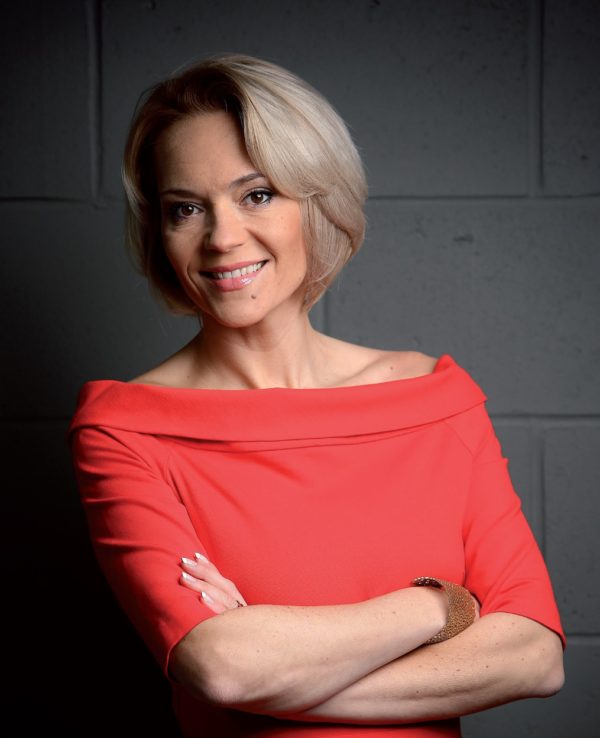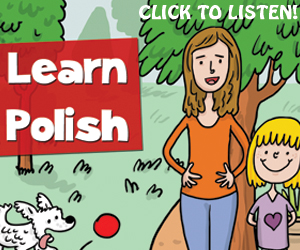“None of these experiences would have been possible if it were not for my Polish background. I owe that to my parents who left their country in difficult circumstances to start a new life in a free world,” writes Kasia Madera, BBC World News Anchor and Journalist in her contribution to the book Poles in the UK: A Story of Friendship and Cooperation.
When I was little, every summer holiday my mum would pack our car with clothes, food and toys and we would leave London and drive to visit my family in Poland.
At that time Poland was a communist country which had rationing, so there were shortages of nearly everything. One of my earliest memories is my grandfather getting up at 3:00 am to queue for bread. So the things we brought with us from the UK were essential.
When I look back at those summer holidays I appreciate how important they were, not just in letting me practise and perfect my Polish language skills, but in giving me an insight into the country. That insight and my bilingual Polish skills have proved invaluable in my professional life as a journalist and presenter at BBC World News.
My first-hand experience of the impact of the Soviet Union on Eastern Europe gives me an understanding of how important it was for Poland to regain its independence, and the troubled relationship it has with Russia. As the daughter of migrants my own background means I have strong links with the UK’s large Polish community. It also enables me to understand why so many Poles came to the UK when Poland joined the European Union.
Working at the BBC
At work I’m regularly called upon to cover a wide range of Polish stories, from reporting on the European Union elections to filming a theatre in Gdańsk dedicated to Shakespeare. Whether it is interviewing Polish political leaders, including the former Prime Minister Donald Tusk (currently President of the European Union), the former President Bronisław Komorowski and the current President Andrzej Duda, or the Polish baritone singer Mariusz Kwiecień about performing a Polish opera for the first time at the Royal Opera House in London’s Covent Garden, the very nature of working on an international rolling news channel means that I have to be ready for anything.
Although fascinating the interviews with politicians and celebrities are rarely as memorable as those with ordinary people who find themselves in extraordinary circumstances. Those who have experienced the greatest hardships are the most stoic and humbling to interview.
I had the honour of speaking to Halina Birenbaum, who survived Auschwitz. On the 70th anniversary of the liberation of the Nazi death camp I asked her how she could face coming back. She simply said because she came back as a free person. Her dignity and strength has left a lasting impression on me.
Polish heritage
My Polish heritage has greatly enriched my life, both personally and professionally. As a journalist the personal and professional frequently overlap. As a child I heard Lech Wałęsa, the Solidarity leader, address parishioners at the Our Lady Mother of the Church Polish church in Ealing, west London, before going on to be elected as the first post-communist President of Poland in 1990.
Years later, when I interviewed Mr Wałęsa and told him about how most of those gathered in Ealing, including myself, cried during his speech, he laughed and jokingly said he did not realise he was such a bad public speaker. I’m always touched by how modest and self-deprecating some of history’s most influential figures are.
Tragic reports
After the Smoleńsk air crash in 2010 in which nearly a hundred Polish dignitaries, including the then President and First Lady, were killed, I ended up reporting outside the St Andrzej Bobola Polish Church in Shepherd’s Bush, London. I was interviewing people I knew about an unspeakable tragedy, made even more poignant because the much-loved parish priest, Monsignor Bronisław Gostomski, was also on the plane.
A week later I was at Trafalgar Square reporting on and hosting a vigil being held for the victims of the air crash. I will never forget the moment the whole square fell silent as thousands of people kneeled in prayer.
My parents’ gift
None of these experiences would have been possible if it were not for my Polish background. I owe that to my parents who left their country in difficult circumstances to start a new life in a free world.
IMAGE: Milton Boyne
***
This text was first published in the book Poles in the UK: A Story of Friendship and Cooperation (by Brin Best & Maria Helena Żukowska, 2016).
For more details see the Poles in the UK Facebook page and www.polesintheuk.net.












![Czy to możliwe? Laxton Hall po raz szesnasty! [ZDJĘCIA]](https://www.tydzien.co.uk/wp-content/themes/LondonLive/thumb.php?src=/media/2024/06/Głowne-zdjęcie-do-artykułu-nr-3-600x400.jpg&w=95&h=74&zc=1&q=100)



